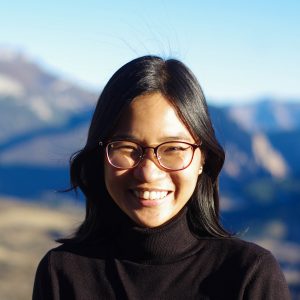ICTA-UAB researcher Denise Margaret Matias to join the Postdoc Academy for Transformational Leadership
ICTA-UAB researcher Denise Margaret Matias is one of the 20 postdocs that will be part of the Postdoc Academy for Transformational Leadership.

ICTA-UAB researcher Denise Margaret Matias is one of the 20 postdocs that will be part of the Postdoc Academy for Transformational Leadership. The Postdoc Academy is designed to train the next generation of leaders in sustainability and transformation research. It provides an intensive high-end training with four seminars in two years that broaden the research competencies of postdocs and promote their qualifications towards transdisciplinary leadership. The program also offers seed funding for initiating research collaborations.
The Postdoc Academy is an initiative of the Robert Bosch Stiftung and a joint project of the Robert Bosch Stiftung and the four academic centres Humboldt-Universität zu Berlin, Leuphana University of Lüneburg, the Stockholm Resilience Centre and the Dutch Research Institute for Transitions (DRIFT) in Rotterdam. Furthermore, an active network of current and former participants of the program will be established.
The program aims at postdocs from across Europe who want to make an impact on the transformation towards a sustainable society and advance the complementarity of natural science, social sciences and the humanities through their research. They should consider themselves intrapreneurs, who act responsible and initiate positive changes and innovation within their institutions. They should also strive toward professorship or other academic leadership positions. A research topic relevant to this year’s focus topic "Scaling Sustainability” excellent English language skills, and experience with or necessity for inter- or transdisciplinary collaborations are required.
A course run consists of four seminars (three full days each) over a period of two years. Each seminar will take place at one of the four academic centres and focus on their respective expertise.
The seminars build on each other and are complementary. The first seminar introduces participants to the fundamentals of the philosophy of science and different modes of knowledge production in order to develop their capabilities for inter- and transdisciplinary research. These contents are discussed in the interaction with inter- and transdisciplinary cases operating on very different scales and handling “scaling” phenomena very differently – and also with a view to the existing funding landscape in sustainability research.
The second seminar explores the potentials as well as the challenges of transdisciplinary research environments and transdisciplinary learning, including individual reflections on the own profile and portfolio as a researcher. They will engage with transdisciplinary research methodologies as well as transdisciplinary learning processes on different levels and learn how to overcome typical difficulties in transdisciplinary research processes through insights into existing examples from “Scaling Sustainability”.
The third seminar introduces resilience thinking and the social-ecological system (SES) perspective, both of which are deeply rooted in complex systems theory. Key concepts are explained, and a specific focus is placed on the importance of addressing interactions between humans and nature and how fundamental changes in these relationships are required if we are to undertake the transformations necessary to achieve sustainable development.
The fourth seminar allows participants to build on their transdisciplinary research practice by deepening their understanding of sustainability transitions and transition governance, including economic, political and cultural perspectives on transitions. They focus on contextualized practices such as local experimentation and social innovation as well as their processes of scaling and institutionalization. The seminar features reflexive engagements with one’s failures, interaction with practitioners and introduces innovative methodologies along with hands-on tools for developing an academic vision as transformational leaders of the future.
The seminars are linked by four thematic modules that create an overarching framework.